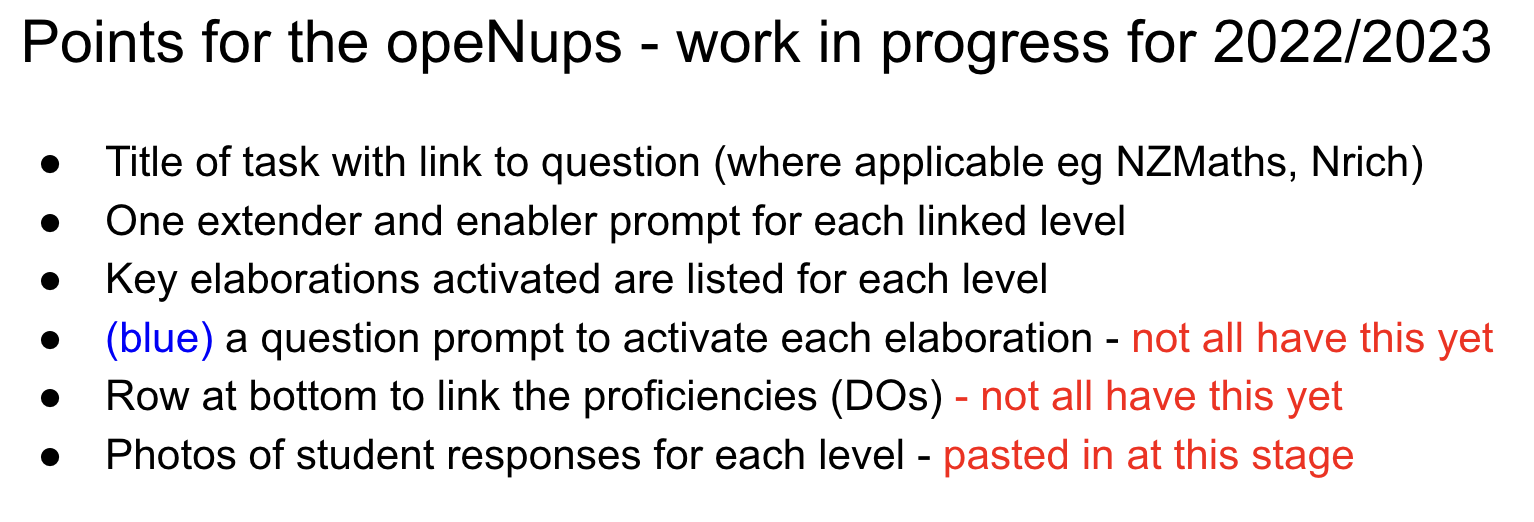Maths - creating opeNups

'OpeNups' are tasks that give students opportunity to activate their learning. A rich and balanced maths programme includes tasks - these are open and solved in a short time, investigations - solved over a longer period of time, and games - open, repeated use, focus can change. Open tasks promote the 'dos' (understand - know - do) - modelling and investigating and communication. The give us an opportunity to assess in a fun way - by children exploring. We spent time building tasks that teachers can do repeatedly with students and adapt. The aim is to have a folder that cluster teachers will contribute to and share tasks for multiple levels. Teachers creating tasks builds consistency and alignment with the progressions. We'll have a folder of annotated 'samples' of what students need to be doing to be 'here'. I liked seeing how Rob modelled launching an investigation (into coordinates), how engaged all learners were and the possibility for te...




